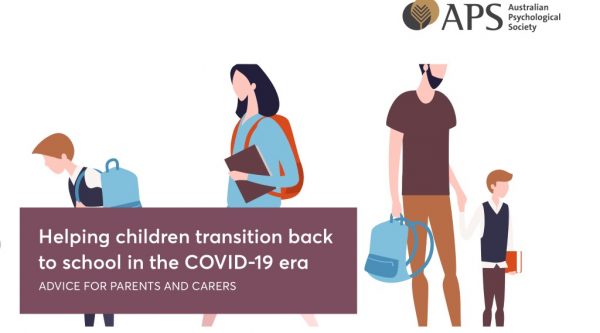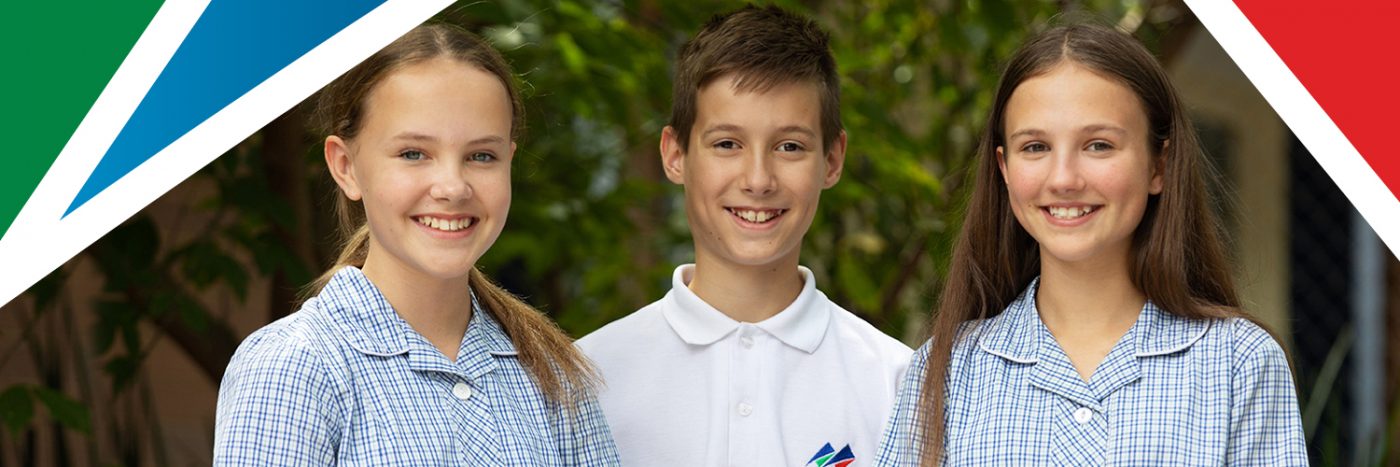Wellbeing
Here we are back at school, face to face . . . . it is a sense of relief and excitement to be doing school as it is meant to be done. I have loved seeing everyone back.
This newsletter article has a focus on helping your child adjust to being back at school. The information comes courtesy of the Australian Psychological Society with additions to make it Mooroolbark College specific.

Transitioning back to school in the COVID-19 era can present many challenges for parents and children. Some Mooroolbark College parents have reported that learning from home has given their child the opportunity to work at their own pace. Many children have also benefitted from the 1:1 support which has helped with learning. Other parents have reported a lack of motivation, increased disengagement from school, increased tiredness and increased anxiety in their child. Given this, it is no wonder that returning to school comes with a mix of relief and excitement along with a new set of stresses for children and parents.
The following advice may help our parents support their child as they adjust back into school;
Reassure your child that it is safe to go to school
Some children may now worry about the safety of returning to school.
To help your child feel safe, have a conversation with them explaining that:
- the decision to return to school is based on medical advice
- children do not usually get sick from COVID-19
- everyone at Mooroolbark College is working hard to make sure that children are safe
- anyone who is unwell will stay at home
- the state government is keeping an eye on things – if it starts to be unsafe, decisions about what to do will be made
- reassure your child that it is normal to have mixed emotions such as excitement, relief, worry and anger
- discuss what they are looking forward to and what they are worrying about
- reinforce good hygiene practices.
After school, it will be important to:
- talk to your child about their day, including what they enjoyed, what they felt worried about and what they are looking forward to tomorrow
- schedule extra family time as your child is likely to have missed being at home with you
- your child may feel more fatigued and will benefit from quiet activities to recharge.
Prepare your child for changes to usual school processes
Your child will notice some changes to their normal school program such as homegroups, bell times arrival procedures etc . These changes have been communicated via Compass.
To help prepare your child:
- talk to your child about upcoming changes – the more they understand the changes, the more comfortable they are likely to feel about them
- if there are specific concerns, then contact their House Cluster Coordinator so a plan and supports can be put in place
- see if there are any strategies that Remote learning enabled that you might be able to take to the classroom
- ask your child what will make their transition back to school easier and see if this can be accommodated by your child’s teacher; for example, knowing the class seating plan or the first activity of the day may help.
- ask your child if there is anything that will make this easier for them, such as arriving to school with friend
Tips for children with cognitive and behavioural challenges
Adjusting back to school can be more challenging for students who have learning difficulties or some difficulties with their mental health. The following strategies can help children who could struggle to adjust back.
- Speak to your child’s House Coordinator so they are aware of your concerns and you might talk about incorporating more rest breaks throughout the day for your child and/or reducing homework until your child has settled back into a routine.
- The Coordinator can let your child’s teachers know of any things they need to watch out for
- As children readjust to the challenges associated with being back at school, they may show greater difficulties with emotional regulation and challenging behaviour – remember, this is likely to be part of the readjustment phase and should improve with time.
- Your child may need your help to regulate. You may find it helpful adding some relaxation strategies into the daily routine. Exercise can also assist.
A final reminder, that your child’s mental health and successful transition back into “normal covid” schooling is our priority and we want to continue to provide welfare support to our students. If you have any concerns at all about your child then please contact your child’s Coordinator or myself and Chaplain Gill Van Der Ende. We are available to parents via phone or text. Your child can also contact us directly by knocking on the door of our office. We are here to support you.
Regards,
John Nichol
Well-Being Leader
WELLBEING AND WELFARE SUPPORT SERVICES
| 24 Hour Emergency | ||||
| Kids Helpline | Counselling service for people aged between 5 and 25 | 24 hours/7 days | 1800 551 800 www.kidshelpline.com.au/young-adults (email, web chat) | |
| Lifeline | Crisis support, suicide prevention and mental health support services | 24 hours/7 days | 13 11 14 | |
| Beyond Blue | Information and support for all ages to promote optimal mental health | 24 hours/7 days | 1300 224 636 (Chat online or email) | |
| E headspace | Provide mental health support for young people aged 12–25 | Phone: 10pm – 1am Online counselling: 1pm – 1am | 1800 650 890? https://headspace.org.au/eheadspace/
| |
| Yarra Ranges Youth Team | Provide support and advice to young people
| 9294?6716 or email youth@yarraranges.vic.gov.au | ||
| Inspiro | Free youth, teen, young adult and family | counselling 9738?8801 or visit https://www.inspiro.org.au/ | ||
| Parent line | Support for Parents and carers with children from birth to 18 years | 8am–midnight/7 days | 13 22 89 | |
| EDVOS | Family violence service in Melbourne’s eastern metropolitan region | Mon-Fri 9am-8pm? Sat 9am-5pm (phone or email) | 03 9259 4200 | |
| No To Violence | Supports for men who use family violence | Mon – Fri 8am-9pm | ||

